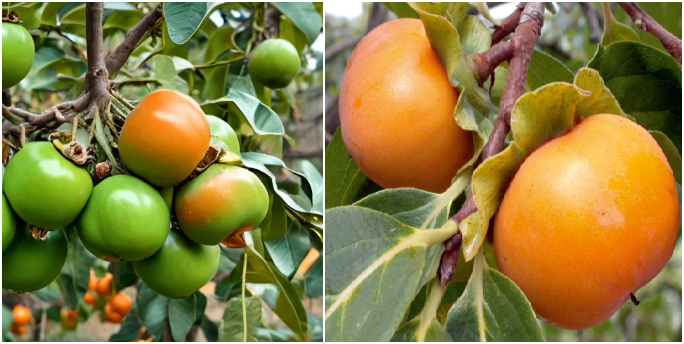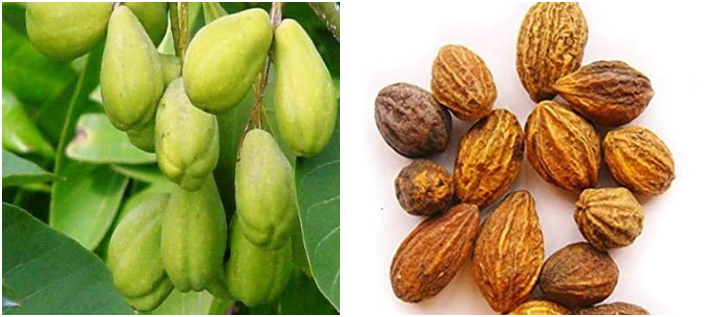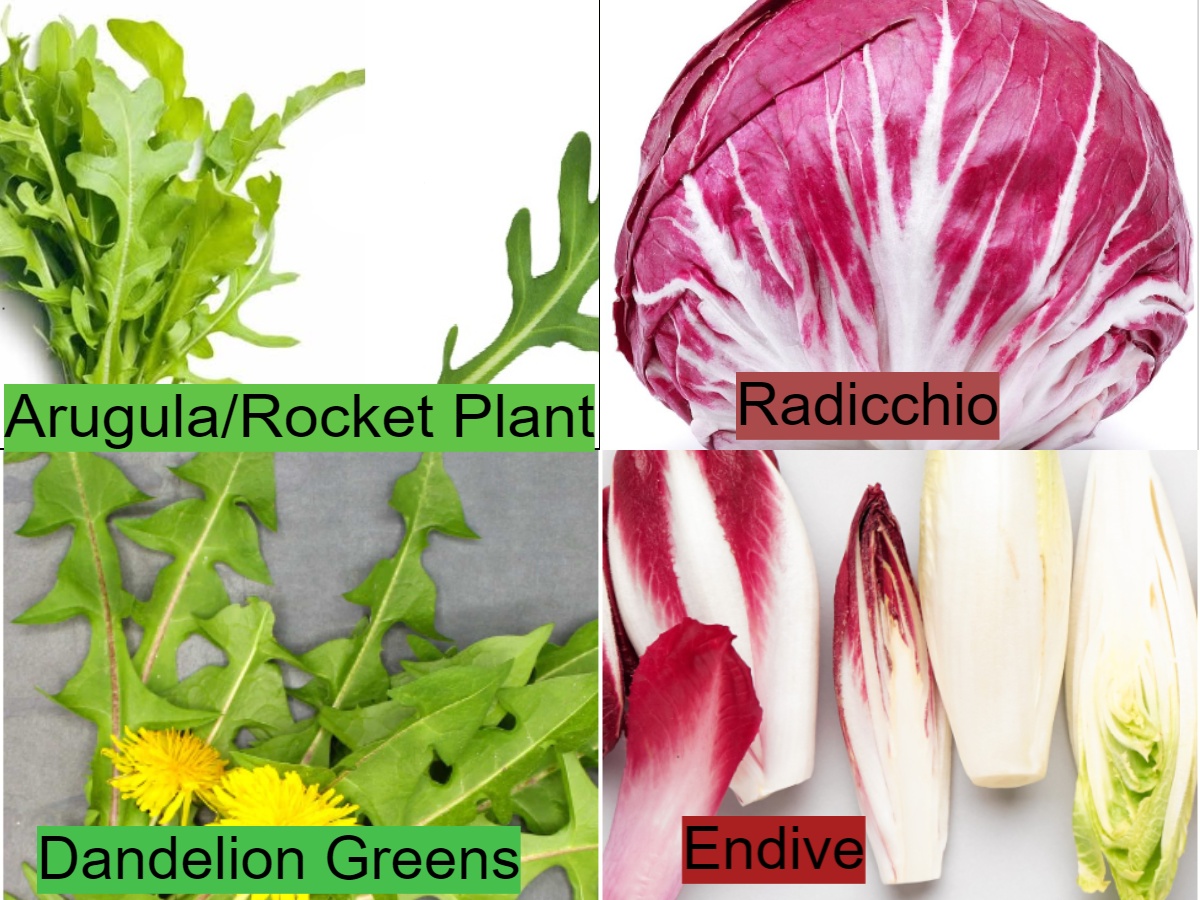The taste of bitter fruits and vegetables does not make them very popular, they make up a staple in many traditional diets around the world. Ranging from the bitingly sweet Momordica Charantia, or the bitter melon, to the astringent cranberries, these foods offer unique flavors and a wealth of health benefits.
THe inner nutritional value makes the bitter fruits and vegetables worth the consumption, even if their bitterness is often an acquired taste. In fact, not infrequently, some of these fruits and vegetables are rife with antioxidants, vitamins, and minerals that are very substantial to overall health and well-being. In this article, we will discuss some of the most well-known bitter fruits and vegetables and their health benefits, but also, at the same time, some considerations for people who might need to avoid them.
Also Read: 10 Superfoods for Your Prostate Health: Keep Your Prostate Healthy And Strong
Health Benefits of Various Bitter Fruits and Vegetables
-
Bitter Melon (Momordica Charantia):
It is also known as Momordica Charantia, tropical and subtropical vine is known as the most bitter fruits and vegetables in the world. It is also called as Bitter apple, Goya, Bitter gourd and cerassee according to the different parts of the world.It cames to the varities of sizes and types. When this gourd in it’s young age (unripe), it could be the most bitterest vegetables in the world as of my personal experiences.
But, when it’s getting ripe the color changed green to red-orange and the inner parts, which has also the jelly type matter, which is sweet. However the outer part remains bitter.It usually cook with the deep fry, so that the bitterness of this vegetable could reduce and easy to eat. Although, it has the various health benefits which you can find below. For your easyness check the below picture and remember that bitterness and share your hilarious memories related to this bitter gourd.

Most bitterest vegetable in the world, Image Source: sharpinn - Nutritional Profile: It is high in vitamins A, C, and several B vitamins, as well as potassium, zinc, and iron.
- Health Benefits: Known for its blood-sugar-lowering properties, it is beneficial for managing diabetes. It also supports liver health and improves digestion.
-
Grapefruit:
Grapefruit is one of the famous fruit. Jamaican sweet orange is the origin of this and this is also a important ingreints to making cocktails and mocktails. This mostly resembling the bittersweet and tangy and tart flavors. It inhabits bitter characteristics and is representative of at least one or several of the fruit’s varieties, which is very high in vitamin C and antioxidants.
- Health Benefits: Helps boost the immune system, helps in weight loss, Lower cancer risk, control blood sugar, treat infection and wounds, and improves heart health by reducing cholesterol levels.
- Nutritional Profile: Rich in vitamins B and C, fiber, and antioxidants.Nutritions of the 100 grams of red greapfruit:
S.N Nutritions Values 1. Calories 42 kCal 2. Protein 0.8 grams 3. Carbohydrates 11 grams 4. Fat 0.2 grams 5. Sodium 0 mg 6. Potassium 135 grams 7. Dietary Fiber 1.6 grams 8. Sugar 7 grams 9. Vitamin C 52% 10. Vitamin B6 5% 11. Magnesium 2 % 12. Calcium, Vitamin D 2%, 0%
-
Cranberries:
Small, red, highly acid berries with a touch of bitterness. Cranberries contain a high level of vitamin C, fiber, and antioxidants, and are commonly served as ingredients in sauces and juices or eaten as dried snack. It was firstly found in limerick, Ireland in 1989. You can check the wikipedia profile for more details:
- Health Benefits: Known for preventing urinary tract infections (UTIs), improving heart health, and supporting digestive health. Also it can reduce inflammation, prevent cancer and also prevent cavities. ALso it contains high levels of oxalate which can be a risk factor for kidney stones.
- Nutritional Profile: High in vitamin C, fiber, and antioxidants.Nutritional Facts/Values of Cranberries
S.N Nutritions Values (100 grams) 1. Calories 46 kCal 2. Protein 0.4 grams 3. Carbohydrates 12 grams 4. Sugar 4 grams 5. Dietary Fiber 4.5 grams 6. Fat 0.1 grams 7. Water COntains 87 % 8. Vitamin C 15% 9 Iron 1% 10. Potassium 2% (It’s better to eat about 100-300 grams of Fresh Berries)
-
Lemon:
Lemon is mostly known as the sourest fruits rather than bitter. But If you take the taste of the lemon: the outer shell of the lemon, which is called lemon zest tastes bitter but the inner fruits taste sour. It is a species of a evergreen flowering tree native of Asia. Lemon is one of the most popular and key ingredients in culnery sector.

Lemon health benefits, Image Source: Donald Regan - Health Benefits: It could enhances our immune function, helps in digestion, and also helps in detoxification of blood. However, there is no any sideeffects of lemon consuming everyday, but we shouldn’t eat or drink it’s juice directly or withoud mixing with water or other juice.
- Nutritional Profile: Excellent source of vitamin C and soluble fiber.
S.N Nutritions Values (per 100 Grams) 1. Calories 30 kCal 2. Carbohydrates 9 grams 3. Sodium 2 mg 4. Potassium 130 mg 5. Fiber 2.8 grams 6. Sugar 2.5 grams 7. Protein 1.1 grams 8. Vitamin C 88% 9. Iron 3% 10. Vitamin B6, Magnesium 5%, 2%
-
Pomelo:
A hybrid of lemon and pomelo, this fruit is large and has a thick rind. It has a sour taste with a mild bitterness, often used for its juice and zest. It is usually used to making the salad in Indian and Nepal, like the picture below.

Pomelo Salad, - Nutritional Profile: Rich in vitamin C, potassium, and fiber.
- Health Benefits: Promotes heart health, aids digestion, and has anti-aging properties due to its high antioxidant content.
-
Persimmons:
It can grows in two types, astringent and non-astringent. The former becomes very bitter while being consumed before it is fully ripe; however, the latter is sweet and mild.

Persimmons tastes bitter in young. (ripe and unripe), Image Source: sharpinn - Nutritional Profile: High in vitamins A and C, fiber, and antioxidants.
- Health Benefits: Supports eye health, improves digestion, and has anti-inflammatory properties.
-
Cocoa:
Seeds of cocao tree are extremely bitter, and mostly, these seeds are refined to form a product commonly known a chocolate. These are process seeds, and the final product is sweetened and sometimes milk is added to form the present well-known sweet.

Cocoa Plant, Fruit, Powder, Dark Chocolates, Image Source: Donald Regan - Health Benefits: Improves heart health, boosts mood, and has potent antioxidant properties.
- Nutritional Profile: Rich in flavonoids, magnesium, and iron.
-
Coffee:
The taste of coffee beans is mostly related to bitterness, whereby the bitterness is what forms the characteristic feature of the brewed coffee. The exact bitterness is determined by several roast and brewing methods.
- Health Benefits: Enhances mental alertness, supports metabolic health, and is rich in antioxidants.
- Nutritional values: Contains antioxidants and essential nutrients such as vitamins B2 and B5, manganese, and potassium.

Coffee health benefits and facts, Image Via: sharpinn
-
Terminalia Chebula (Chebulic Myrobalan):
Chebulic Myrobalan fruits are very sour and thus turn out to be the major component of almost all traditional medicines, particularly Ayurveda. They offer a wide range of health benefits, from improving digestion to detoxifying the body.
Terminalia Chebula Health Benefits, Image Via; Sharpinn - Health Benefits: Used in traditional medicine for digestive issues, diabetes management, and cognitive support.
- Nutritional Profile: Contains tannins, anthraquinones, and other bioactive compounds.
-
Terminalia Chebula (Chebulic Myrobalan):
It is not actually a fruit in themselves, Brussels sprouts have often been cited as mildly sweet, nutrient-dense, full of vitamins C and K, and surprisingly quite tasty when roasted or sautéed.

Brussels Sprouts Health Benefits, Via: Grow Organic - Nutritional Profile: High in vitamins K and C, fiber, and folate.
- Health Benefits: Supports bone health, aids in digestion, and has cancer-preventing properties.
Bitter Fruits and Vegetables Are Not Suggested for Some People
While bitter fruits and vegetables offer numerous health benefits, certain individuals should exercise caution:
- Grapefruit may be an issue with such drugs as statins and some blood pressure medications, leading to dangerous interactions.
- Cranberries: Those prone to kidney stones should not consume this food excessively, since it contains oxalates.
- Coffee: The high intake may result in sleeplessness, anxiety, and digestive problems among some consumers.
- Bitter Melon (Bitter gourd): It should be avoid during pregnancy as it is utero-stimulant.
Other Bitter Fruits and Vegetables with Plenty of Health Benefits
- Arugula: A green packed with Vitamins A, C, and K, peppery in taste and rather on the bitter side.
- Endive: Rich in fiber and vitamins, this herb helps to boost digestion and immune function.
- Dandelion Greens: A rich source of vitamins A, C, and K, this herb is taken traditionally for its benefit on the liver.
- Radicchio: This is rich in antioxidants, thus good for the heart and aids digestion.

FAQs
Why bitter fruits and vegetables are healthy?
They are a great source of many important nutrients, antioxidants, and bioactive substances with beneficial effects, such as a positive influence on digestion, maintaining heart health, and immune function, among others.
So, can everybody enjoy these bitter fruits and vegetables?
In most cases, yes; however, those on particular medications, as well as those with underlying health conditions, should check with a healthcare provider prior to consumption.
How do I tone down the bitterness of these fruits and vegetables?
You can tone down bitterness and bring out the flavor by cooking them this way, in the oven, roasted, caramelized, sweeteners.
Is there potential danger in consuming bitter foods?
Not really if you are eating them in small amounts; high consumption could possibly upset some people’s stomachs or interact with some medications.
What are some creative ways to include bitter foods in my diet?
Some of the few ways are in smoothies, salads, stir-fries, or the more traditional forms of herbal teas and dishes.

